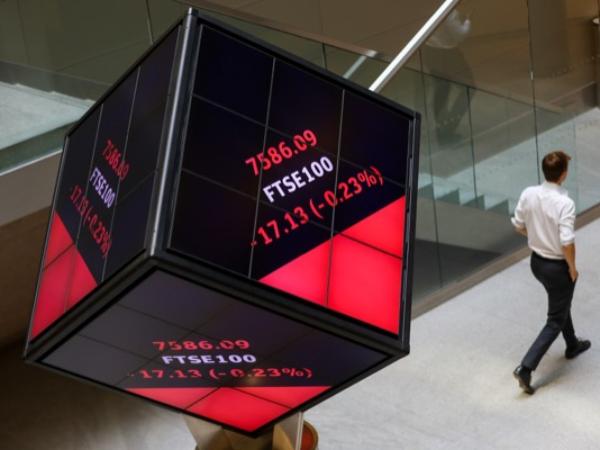
Which FTSE 100 stocks should you keep an eye on?
Despite the FTSE 100 rising last month, rising issues could cause them to fall in April.

But some may resist the trend.
BAE Systems (LON:BA)
BAE Systems shares are up 30% to 722p year-to-date, after it was boosted by sentiment over Russia’s invasion of Ukraine and encouraging full-year results which saw sales grow by 5% to £21.3 billion last year. CEO Charles Woodburn thinks the group is ‘well positioned’ for future growth; and with defence spending being reprioritised across the developed world, investors are anticipating new contracts for the largest defence contractor in Europe.
In addition, Rolls-Royce shares spiked last week over speculation that BAE might put in a takeover bid. As the UK government maintains a golden share in Rolls-Royce over security concerns, BAE is one of the only companies that could successfully pursue the engineer.
Scottish Mortgage Investment Trust (LON:SMT)
Scottish Mortgage has fallen in value by a third since November. A toxic combination of the Omicron variant, rocketing global inflation, and the rising interest rates to combat it, are all hammering its tech-heavy holdings.
It’s especially vulnerable to geopolitical tensions between China and the US, with its US-listed Chinese stocks NIO, Alibaba, and Meituan at risk both of being delisted in the States, and also of being caught in the crossfire of the Chinese ‘zero-covid’ policy that is seeing tens of millions returning to lockdown.
However, the trust has made exceptional returns over the years. After falling to 835p earlier in March, its recovery to 1,030p today could represent a rare buying opportunity.

SSE (LON:SSE)
SSE (LON: SSE) shares are up 20% over the past year to 1,750p, as the FTSE 100 renewable energy stock benefits from the environmental focus brought on by the COP26 summit, and the volatility of Brent Crude caused by the ostracization of Russian oil.
The operator is developing global wind farm operations from the USA to Japan. But its crown jewels are going to be Seagreen, the world’s deepest, fixed-bottom wind farm, and Dogger Bank, the largest offshore wind farm in the world. Both are currently under construction.
With the UK government likely to publish its National Energy Strategy in April, Business Secretary Kwasi Kwarteng already plans to quadruple offshore and double onshore wind capacity by 2030. SSE is investing £12.5 billion on its green investments by 2026, aiming to double its renewable capacity to 8GW.
In February’s Q3 results, CFO Gregor Alexander exhorted the ‘significant bolstering of SSE Renewables’ pipeline, the increased visibility we have over opportunities for greater growth.’ And since then, it’s already ‘adjusted earnings per share to be in a range of between 92 and 97 pence compared to previous guidance of at least 90 pence.’
Glencore (LON:GLEN)
Glencore (LON: GLEN) shares are up 76% over the past year to 500p, as the FTSE 100 stock benefitted from the booming mining supercycle. The company’s cobalt, Nickel and Copper are essential for the EV revolution, with most western countries planning to phase out ICE cars long before 2040 hits.
However, it faces a political battle in April over its stakes in Russian companies En+ and Rosneft. While BP and Shell have declared they will exit their Russian positions, Glencore has said it has ‘no realistic way’ to leave the country.
However, it added it will ‘not enter into any new trading business in respect of Russian origin commodities unless directed by the relevant government authorities.’
But continuing to own a 10.5% in En+ and a 0.57% stake in Rosneft could soon become a problem if the UK government continues to clamp down.
Vodafone (LON:VOD)
Vodafone (LON: VOD) shares are up 9% year-to-date to 126p, despite recent falls since mid-February. Notwithstanding declining revenue, the FTSE 100 stock has seen profits before tax increase from €2.7bn to €4.4bn over the past five years.
But the mobile operator has a €73bn pile of debt that is only going to become increasingly expensive. It does expect free cash flow of €5.3 billion in this fiscal year, but is likely to want to spend this money on further expansion of its Africa-based MPESA mobile payments operation.
Last month, it rejected an €11 billion bid for its Italian business, which controls 28% of the country’s market, by French operator Iliad. And it’s also in advanced discussions over the sale of its 21% stake in India’s largest mobile company, Indus Towers.
With monetary policy tightening, Vodafone could soon be announcing sales of foreign interests to cut down its debt and weather the oncoming storm.